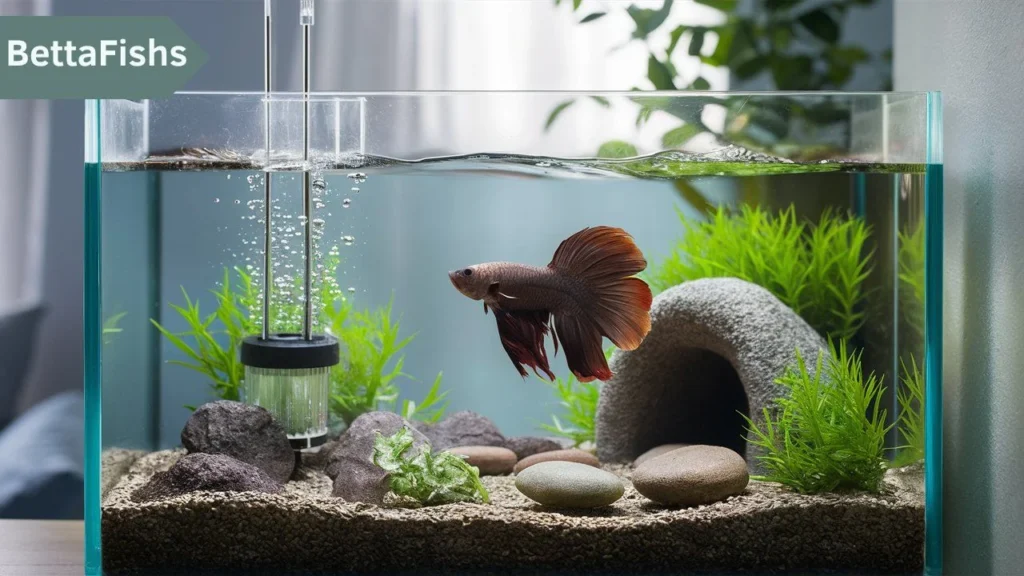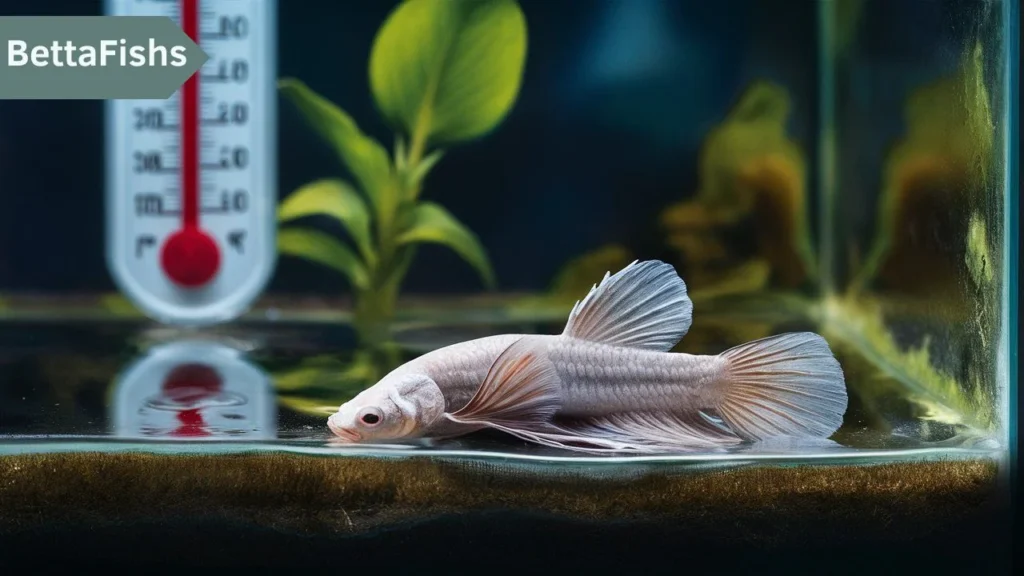Betta fish are known for their lively behavior and beautiful, flowing fins. So, when your betta suddenly becomes inactive, it can be quite alarming. Let’s dive into the possible reasons behind this behavior Why Is my Betta fish not moving? , how you can help your betta regain its energy.
Betta Fish Behavior
Betta fish are naturally curious and active creatures. They enjoy exploring their environment, flaring at their reflections, and interacting with their owners. If your betta is not moving as much, it’s essential to first understand what normal behavior looks like.
Normal Betta Activity Patterns
A healthy betta will swim around the tank, flare its fins occasionally, and may even interact with you by following your finger along the glass. Bettas are also known for building bubble nests, especially when they’re content. However, they do have periods of rest, usually during the night or in darker areas of the tank.
Signs of a Healthy Betta
A healthy betta will have vibrant colors, clear eyes, and smooth, flowing fins. Their movements should be purposeful, whether they’re exploring, eating, or resting. Occasional resting is normal, but extended periods of inactivity may indicate an issue.
Possible Reasons for Lethargy
There are several reasons why your betta might be less active than usual. Here are some of the most common causes:
Temperature Issues
Tropical species, including betta fish, do well in warm water. If the water in their tank is too cold, they may become sluggish.
Ideal Water Temperature for Bettas
The ideal water temperature for betta fish is between 76°F and 82°F (24°C to 28°C). Water that’s too cold can slow down their metabolism, making them less active.
Effects of Cold Water on Betta Activity
In cold water, bettas may become lethargic, spend more time resting, or even appear to be in a state of hibernation. Prolonged exposure to cold water can lead to serious health issues.
Water Quality Concerns
Poor water quality is another common cause of lethargy in betta fish.
Importance of Clean Water
Betta fish need clean, well-maintained water to thrive. Dirty water can contain harmful toxins like ammonia, nitrites, and nitrates, which can stress your betta and lead to health problems.

Common Water Quality Issues
High levels of toxins, incorrect pH levels, and uncycled tanks can all contribute to poor water quality. Regular water changes and monitoring are essential to keep the water conditions optimal for your betta.
Overfeeding and Digestive Issues
Feeding your betta too much or too often can lead to digestive problems, which can make them sluggish.
Effects of Overfeeding on Bettas
Overfeeding can cause bloating and constipation, which can make your betta uncomfortable and less likely to move around.
Signs of Digestive Problems
If your betta is bloated, has a swollen belly, or isn’t eating, they may be suffering from digestive issues. In severe cases, this can lead to swim bladder disorder, where the fish has trouble swimming properly.
Stress Factors
Betta fish are sensitive creatures, and stress can have a significant impact on their behavior.
Common Stress Triggers for Betta Fish
Stress can be caused by a variety of factors, including sudden changes in water conditions, poor tank mates, or an environment that’s too bright or noisy.
How Stress Affects Betta Movement
When bettas are stressed, they may hide, become less active, or even stop eating. Severe health problems may eventually result from ongoing stress.
Illness and Disease
Various illnesses and diseases can also cause your betta to become inactive.

Common Betta Fish Diseases
Some common diseases that affect bettas include fin rot, ich, and velvet. Each of these diseases has specific symptoms, but a general sign of illness is a lack of movement.
Symptoms to Watch For
Look out for signs like white spots, clamped fins, or a loss of color. These could indicate that your betta is sick and needs treatment.
Old Age
Naturally, bettas become less active as they get older.
Aging Signs in Betta Fish
Older bettas may have duller colors, frayed fins, and spend more time resting. While they may still swim around, they might not be as active as they were in their younger days.
How Age Affects Activity Levels
It’s normal for older bettas to be less energetic, but they should still have periods of movement and activity. If your betta is old and not moving much, it might simply be due to age, but it’s still important to monitor them for any other signs of illness.
How to Encourage Movement in Your Betta
If your betta is not moving, there are several steps you can take to help them become more active:
Adjusting Water Temperature
Ensure that the water temperature is within the ideal range. If it’s too cold, consider using a heater to bring the temperature up gradually.
Improving Water Quality
Perform regular water changes, clean the tank, and test the water parameters to ensure they’re within the optimal range for bettas.
Feeding Properly
Avoid overfeeding and provide a balanced diet with high-quality betta pellets, and frozen or live foods.
Reducing Stress
Minimize stress by creating a calm environment. Avoid sudden changes in the tank, choose peaceful tank mates, and provide hiding spots for your betta.
Identifying and Treating Illness
If you suspect your betta is sick, isolate them in a hospital tank and consult a veterinarian for treatment options.
When to See a Vet
Sometimes, despite your best efforts, your betta might still not improve. In such cases, it’s important to seek professional help.
Recognizing Serious Symptoms
If your betta is not eating, has visible signs of disease, or is lying on the bottom of the tank for extended periods, it’s time to see a vet.
Finding a Qualified Aquatic Veterinarian
Look for a vet who specializes in fish or aquatic animals. They can provide you with the best advice and treatment for your betta.

Conclusion
Betta fish are usually active and curious creatures, so it’s concerning when they stop moving. By understanding the possible reasons for their lethargy and taking the appropriate steps, you can help your betta regain its energy and live a healthy, happy life.
FAQs
Why is my betta fish lying on the bottom of the tank?
Your betta might be lying on the bottom of the tank due to low water temperature, poor water quality, or illness. It’s important to check these factors and adjust as needed.
Can betta fish recover from being lethargic?
Yes, betta fish can recover from lethargy if the underlying cause is identified and treated. Ensuring proper water temperature, quality, and diet can help them regain their energy.
How often should I check my betta’s water parameters?
You should check your betta’s water parameters at least once a week, or more frequently if you’re troubleshooting an issue. Regular monitoring helps maintain a healthy environment.
What are the best foods for a betta fish?
High-quality betta pellets, along with occasional treats like frozen or live bloodworms, brine shrimp, and daphnia, are ideal for a balanced diet.
How can I tell if my betta fish is stressed?
Signs of stress in bettas include hiding, clamped fins, loss of color, and reduced appetite. Identifying and removing stressors can help improve their well-being.





3 Comments
Leave a Reply3 Pings & Trackbacks
Pingback:Why Is My Betta Fish Swimming Sideways?
Pingback:Betta fish floating on side
Pingback:How many Betta fish can live together?